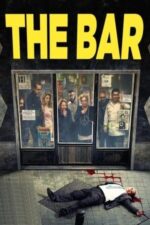More Than Just Coffee: The Enduring Magic of Cafés on Film
Okay, let’s talk about cafés in movies. Not just as a backdrop – though they certainly can be lovely backdrops! – but as something more vital, something that actively shapes the narrative and reflects our own human experiences. It's fascinating how often filmmakers return to this seemingly simple setting, and for good reason: a café is inherently ripe with possibility.
Think about it. A café is a liminal space. It’s neither home nor work, public yet intimate. People are present, but often lost in their own worlds. This creates an atmosphere of quiet observation, perfect for sparking connection or highlighting isolation – and that's precisely what we see explored across film history.
Take A Mere Encounter, for example. The entire premise hinges on the potential within a bustling café. It’s not just where they meet; it’s because of the setting - the anonymity, the shared space – that their connection feels so poignant and fragile. It's like those moments you have in real life, fleeting encounters with strangers that leave you wondering "what if?". I remember once being on a train and having a brief conversation with someone about books… it lasted maybe five minutes, but it stuck with me for days! That’s the kind of resonance A Mere Encounter so beautifully captures.
But cafés aren't always about romance or quiet contemplation. In Late Night Shopping, the café becomes a hub for a group of friends navigating life’s messy realities – pranks, shared stories, and ultimately, devastating betrayal. The familiar comfort of their usual spot is shattered by Vincent’s actions, highlighting how even seemingly stable environments can be rocked by personal conflict. It's a stark contrast to the cozy atmosphere we often associate with cafés.
And then there's Café Funiculi Funicula, which takes the concept into pure fantasy! The idea of a café where you can literally rewrite your past? That’s brilliant, tapping into our universal desire for second chances and the bittersweet ache of nostalgia. It reminds me of those "wouldn't it be nice if..." moments we all have – wouldn't it be amazing to go back and say something different, do something differently?
Even films like Dream for an Insomniac and Love, Fall & Order, while centered on other plot points, use the café setting to underscore themes of longing, hope, and unexpected connection. The aroma of coffee becomes almost symbolic – a comforting constant amidst personal turmoil.
Ultimately, the enduring appeal of cafés in film lies in their ability to mirror our own lives. They’re places where we seek solace, connection, or simply a moment of quiet reflection. Whether it's sparking romance, fueling conflict, or offering a fantastical escape, the humble café continues to provide filmmakers with fertile ground for exploring the complexities of the human experience. So next time you see a café on screen, take a closer look – you might just find more than meets the eye (and maybe even crave a latte!).







































